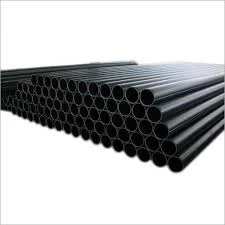Nov . 27, 2024 11:22 Back to list
Understanding HDPE Plastic Welding Rods for Effective Jointing Techniques
The Advantages and Applications of HDPE Plastic Welding Rods
High-Density Polyethylene (HDPE) is one of the most versatile and widely used plastics in the world today. Renowned for its strength, resistance to impact, and ability to withstand temperature variations, HDPE is the material of choice for various industries. An essential component of working with HDPE is the utilization of HDPE plastic welding rods. These rods facilitate the process of welding, providing a robust and reliable method of joining HDPE components. In this article, we will explore the advantages of HDPE plastic welding rods, their applications, and key considerations when using them.
Advantages of HDPE Plastic Welding Rods
1. Durability and Strength HDPE plastic welding rods are specifically designed to match the material properties of HDPE sheets and components. This compatibility ensures that the welding joint is just as strong, if not stronger, than the surrounding material. In applications that require structural integrity, these rods offer peace of mind.
2. Chemical Resistance HDPE exhibits excellent chemical resistance, making it suitable for use in environments where exposure to corrosive substances is a concern. When using HDPE welding rods, the welded joints maintain this resistance, ensuring longevity in various applications, from chemical tanks to piping systems.
3. Ease of Use Welding with HDPE rods can be done using various techniques, including hot air welding and extrusion welding. These methods are relatively straightforward, allowing both experienced professionals and DIY enthusiasts to achieve good results. The melting point of HDPE is manageable, making it easier to work with compared to other thermoplastics.
4. Cost-Effectiveness Compared to other welding materials, HDPE plastic welding rods are relatively inexpensive. This cost-effectiveness makes them an attractive option for both small-scale projects and large industrial applications. Additionally, the durability of the welded joints reduces the need for frequent repairs or replacements, further enhancing cost savings over time.
Applications of HDPE Plastic Welding Rods
1. Marine Applications HDPE is commonly used in boat building, docks, and other marine structures due to its buoyancy and resistance to saltwater corrosion. HDPE welding rods are pivotal in repairing or fabricating components for these applications, ensuring water-tight seals and structures.
2. Tank and Pipe Fabrication Many industries rely on HDPE tanks for storage, treatment, and transportation of hazardous materials. The use of plastic welding rods facilitates the creation of custom tanks and piping systems that can withstand high pressures and corrosive environments.
hdpe plastic welding rods

3. Plastic Recycling The increasing emphasis on sustainability has led to a surge in plastic recycling initiatives. HDPE plastic welding rods can be utilized to repair recycled plastics or combine them into single structures, thus ensuring that valuable materials do not go to waste.
4. Signage and Displays HDPE is also popular in the signage industry, where it is used for creating durable outdoor signs. Welding rods can be utilized to fabricate intricate designs or make repairs, ensuring the longevity of signage in outdoor settings.
5. Agricultural Uses Farmers utilize HDPE for various applications, from storage bins to irrigation systems. The durability and resistance to UV radiation make HDPE welding rods an ideal solution for maintaining agricultural equipment over time.
Considerations When Using HDPE Plastic Welding Rods
While HDPE plastic welding rods offer many benefits, certain factors must be considered for successful welding
- Surface Preparation Clean surfaces free from contaminants are crucial for a strong bond. Proper cleaning ensures that the welding process achieves maximum strength.
- Temperature Control Maintaining the right temperature during the welding process is essential. Too high a temperature can cause burning, while too low can result in inadequate melting and poor adhesion.
- Skill Level Although HDPE welding can be performed by amateurs, some projects may require experienced hands to ensure quality results. Training on proper welding techniques may be beneficial for those new to the task.
Conclusion
HDPE plastic welding rods represent a vital resource in various industries, combining strength, durability, and cost-effectiveness. Their ease of use and versatility make them suitable for a wide range of applications, from marine construction to agricultural systems. By understanding their advantages and adhering to best practices during welding, users can achieve reliable, high-quality results for all their HDPE project needs. Whether in industrial settings or DIY endeavors, HDPE plastic welding rods are an invaluable asset in the world of plastic fabrication.
-
High-Quality PPR Pipes and Fittings Durable ERA PPR & PVC PPR Solutions
NewsJul.08,2025
-
Black HDPE Cutting Board - Durable, Non-Porous & Food Safe HDPE Plastic Cutting Board
NewsJul.08,2025
-
High-Quality CPVC Panel Durable HDPE & PVC Panels Supplier
NewsJul.08,2025
-
Double PE Welding Rod Supplier - High Strength, Durable & Versatile Welding Solutions
NewsJul.07,2025
-
High-Quality PVC-O Pipe Supplier Durable 75mm PVC Pipe & Connections Leading PVC Pipe Company
NewsJul.07,2025
-
HDPE Drainage Pipe Supplier – Durable & Corrosion-Resistant Solutions
NewsJul.06,2025

